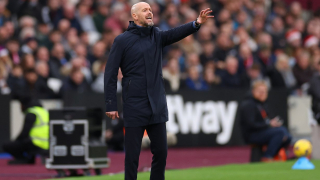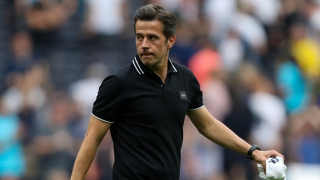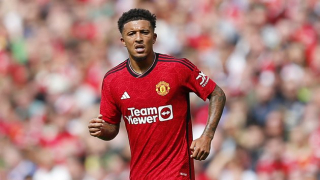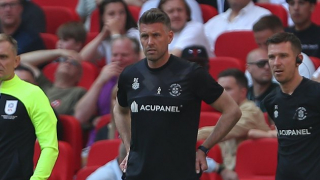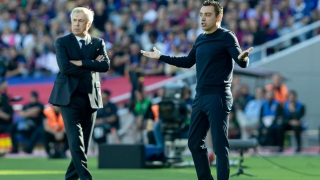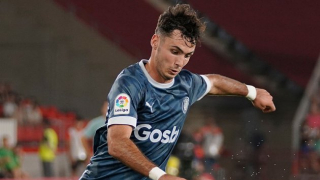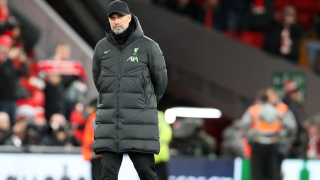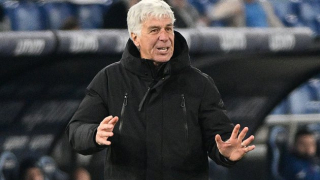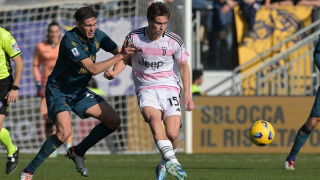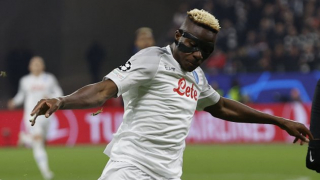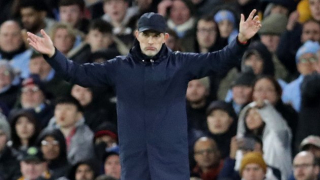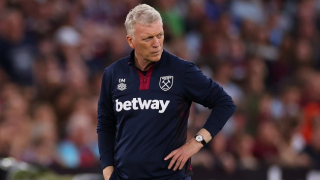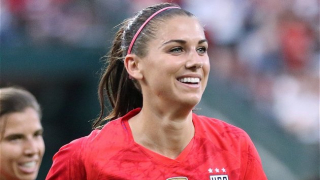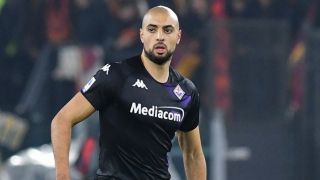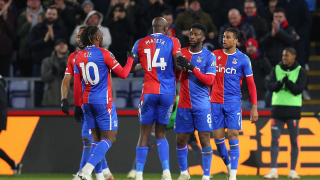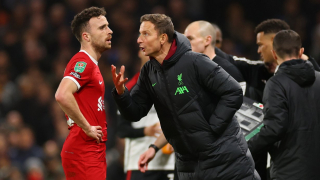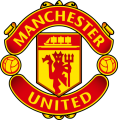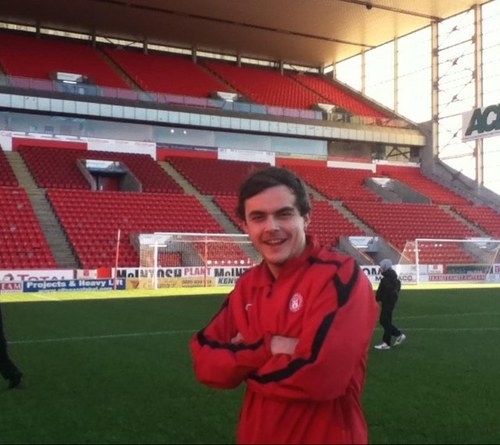When Martin Edwards took over from his father as chairman of Manchester United football club in 1980, he may have had aspirations to turn them into the biggest football club in the world. But when he walked away from his role, 22 years later, that's exactly what he had done. Mr. Edwards spoke exclusively with Tribal Football:
You've talked about how as United grew you were forced to focus more on the business side and not on the football with Sir Alex. Is there a frustration or regret that you were taken away from the football side of things?
A little bit. But at the end of the day, by making the business side succeed, it actually helped the football side because it made us fairly dominant and we could go and get the players we wanted. So in one sense a little bit, but it was all to a good cause.
What's your view on the manager and technical director management structure? Do you think clubs these days can still work with a manager who is in control of all things?
It's difficult because Sir Alex [Ferguson] had control of the training ground and all the coach things like that, tactics and everything else. The only thing he didn't have control of was the buying and selling and obviously the contracts themselves.So he was in charge of his own expertise, I think it was beneficial that certain responsibility were taken off him.
Some of the old fashioned managers, people like Arsene Wenger, they don't want the technical director, but for other managers, it can help as long as they work in tangent with each other then there can be benefits to it. I mean the more responsibilities you take off the manager, so they can then concentrate on the football, the players, tactics and matches, the better really.
When did Sir Alex first talk about revitalising the United academy with you? Was it immediate?
Very early on. Very early on when he arrived in November 1986. One of the first things he did was obviously look at the whole club, the whole structure and very quickly he decided we were losing our local players to Manchester City. So the one thing he did was strengthen the scouting and local recruitment and it put us on a more competitive level. That was very important and of course we got the benefit of that with the 1992 side six years later when we produced that great youth side.
If Sir Alex had been in charge, do you think Peter Beardsley would've been allowed to leave?
Difficult one because at the time we had a few strikers. Beardsley came in and played one game. It was a cup game and he played forty-five minutes. It was a miss but these things happened.
You signed Paul Ince after a photograph of him in a United shirt appeared in the press. Can you recall your reaction to seeing it?
There's no doubt Paul wanted to join United. He was very keen and that was one way that he thought would help him get there a bit quicker, but it certainly upset the West Ham supporters and he made it very unpopular going to West Ham. From his point, it probably wasn't the best thing to do on reflection but I can understand why he did it.
Tell us a little about re-signing Mark Bosnich. Why didn't it work out for him at United?
We had Mark for a while. The problem with Mark was he wasn't the best kicker and the thing about goalkeepers today was that you need the all round game. Now the ball is played back to keepers with the back pass and all the rest of it and they've got to be quick on their feet. And I think the thing that let Mark down was his kicking, not his shot-stopping, he was a good shot-stopper but I think he wasn't necessarily a good footballer.
Was there ever a concern of losing Roy Keane to Blackburn? How did you convince him to sign for less than Rovers had offered? Why did he sign and not Alan Shearer?
First of all, Roy spoke to Blackburn [Rovers] before he spoke to us. I don't think he knew we were interested. When we found out that he was available and he had had words with Kenny Dalglish, we then entered the fray and made an offer that was acceptable to Blackburn. But he had given his word to Kenny Dalglish, so Sir Alex [Ferguson] spoke to him and persuaded him that Manchester United was the club for him and he agreed with that.
So he went back on his word with Blackburn, but I don't think he actually signed the forms, so it worked out well.
In regards to Shearer, there was no position rivalry but we tried to sign Shearer before he signed for Blackburn [from Southampton] but he signed for Rovers, and of course we tried again when he went to Newcastle, but by then [Rovers president Jack] Walker was keen for him not sign for United.
What were the biggest offers you turned down for United players?
We turned down [an offer for Bryan] Robson when he we was at his absolute peak. I think it was Juventus in for him and offered £3m which was a big sum at the time but we didn't want Robson to go. At one time, an Italian club came in for [Paul] Scholes. It might have been Milan, but it was definitely one of the top Italian clubs at the time.
Where does Bryan Robson's performance against Diego Maradona's Barcelona stand in the best you've seen in a United shirt? Can you recall the reaction of the Barca delegation during and after the game? Have you seen better?
It equals the best I've ever seen. I mean obviously Roy Keane's performance against Juventus when we were 2-0 down and we came back to win. He got booked and couldn't play in the final but his performance in the semi final was fantastic.
But Robson's performance against Barcelona in the 84' European Cup Winners Cup final quarter-final was for me was as good as anything I've seen in a United shirt. He was absolutely fantastic that night. We were 2-0 down and we had to win by three clear goals and he scored two of them. What a great all around performance by him it was unbelievable.
They [Barcelona] were confident but they were disappointed on the night we were just superb that night.
United were the first English club to set up European partners with Royal Antwerp. What were the advantages of such a relationship? What's your opinion of how Manchester City are setting up satellite clubs around the world?
The proof of it is how many players come through that actual system. When we set it up, what it was good for was for players going to play and get experience by playing in a foreign country.
We haven't recruited many in terms of them coming the other way. And again with Manchester City they've got these connections at the moment and they may get players through it, I don't know, but the proof is how many players they get through the system, and of course it's quite expensive doing it that way. You're taking on the club wages etc. It's still be to proven if it works and is successful.
What's your view of how Chelsea are using the loan system? Was this something United ever considered?
If you have too many [out on loan] you can abuse the system a bit because if you have them out on loan and then you insist they can't play against you and the top players can't play against you so I think the system is open to a little bit of abuse.
As long as it's used sensibly I can understand it. I think that's a lot players [Chelsea have] and it can be subject to abuse if you've got them out on loan then it does mean you can ensure an easy ride against particular teams then it needs looking at to be honest.
What's your opinion of the push from clubs to change the share of overseas TV revenue? Is it in the spirit of how the Premier League started?
When I was there I was always a great advent of the premise that domestic TV was 50%, appearances 25% and league position 25%, and overseas was shared equally.
If you started to change that then everything was up for grabs or renegotiation would be needed for every part of it. So I was always one for saying lets keep the status quo, but of course what's happened over the past few years, the overseas TV has become so valuable and there is talk that in the future, the overseas might even outgrow the domestic, there is just so much money in it now.
And of course it is the bigger clubs putting in the appearances and there the ones that are generating the income so I can understand that if you're the one generating the income then you're entitled to more of the share but you've got to make a play for that, and of course it's going to take a two thirds majority to change it and getting two thirds won't be easy, because although the top six clubs and maybe three clubs have joined them, now the rump will not vote for it, so it's going to be difficult to achieve it before anything gets changed.
What was your greatest moment as Manchester United chairman? The time you felt you had reached the pinnacle?
It was a combination of two things really it was definitely in 1999. I was planning on stepping down in 2000 because I brought Peter Kenyon on in 1997 as CEO and Finance Director David Gill, but in 1999 when we won the treble, the Champions League, plus the fact that at that time, we were voted number 1 wealthiest franchise, number 1 sporting franchise in the world and best football club in the world.
What was the key in developing United into the business that it eventually became?
The biggest step was the five of us setting up the Premier League, and once we set up the Premier League in the 92/93 season and Sky had come in and paid a lot more money for TV but we also got more live games and exposure, that allowed the business side to grow with it and it also coincided with us winning the league for first time in 26 years.
The first year of Premier League, with all the coverage and global exposure, that was the start of it. And the year before we floated anyway and we had a good shareholder base, the Premier League and the Champions League - just a whole rash of things that all took place at the same time.
When you arrived at Manchester United, Liverpool were the most successful club in England. Are you surprised by their domestic struggles?
Not really. When I took over at United Liverpool were the dominant side. We've actually replicated Liverpool's success almost exactly, possibly with the exception of Europe. But it took a lot of time it was only in 1993 when we won the league. We took over just at the right time because of the [Sky] TV coverage and the reformat of the Champions League. It took us a long time and its taken that long to get far ahead and not surprisingly, really only coming about through hard work.
It is difficult once you lose it, its difficult [to get it back]. They're always there or thereabouts, it has been hard for them but it was hard for us for years as well. You'll never know when they will rise again, they're certainly still a very big club.
Was it your ambition to take over from Liverpool and become the most dominant club in England?
That was always our ambition. The main theme of the book is really about trying to topple Liverpool. That was always Alex's ambition when he arrived and it was always my ambition when I arrived as Liverpool was the biggest rival.
So that was a big driver for us and they were the catalyst really, they made us work harder for what we had to achieve, that's very much the theme.
What's the one player you would have liked to have seen pull on the United jersey?
It would be [Zinedine] Zidane, but in today's game, I would love too see Lionel Messi in a United shirt but of course, in our time going back to the 90's, Zidane was around. They're both great players.
Martin Edwards is currently promoting his book, Red Glory : Manchester United and Me. It details the former Manchester United chairman's 22-year stint at the club, where he took the value of the Red Devils from £2million in 1980 to £2billion by the time he left in 2002. Edwards was also the man who hired Sir Alex Ferguson, who would win eight Premier League titles, six FA Cups and a Champions League while Edwards was at the club. Edwards now holds the position of honorary life president at the club

